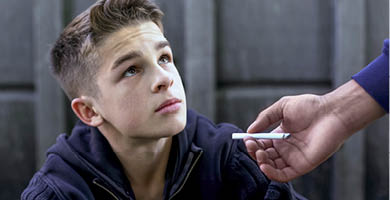Summer holidays are around the corner and it’s a great time for families to get outside and get active. It’s also a time when we see accidents and injuries, many of them preventable. That’s why we’re shining a spotlight on summer safety. Here are some tips, tricks and information to help you and your family stay safe this summer!
Download your free summer safety poster here
Burns first aid
When the weather heats up, Australians love barbecues and campfires. But they also pose a risk.
The RCH National Child Health Poll tells us one in four parents don’t know first aid for a burn.
If your child gets a burn, immediately place the area under cool running water for 20 minutes. Do not use ice to cool the burn as this may make it worse. Never apply lotions, creams or food items (including egg whites, butter, toothpaste and potato). Cool running water is best. Always seek medical advice regarding further treatment as burns can be more severe than they first appear.
New data also shows that in the public holiday period, many children are burnt by flames or hot coals in campfires thought to have been extinguished. Campfire coals stay hot for a long time, including overnight. Children have been burnt by coals from a fire the previous day that was not fully put out. Always use water (not sand) to put out campfires as sand can trap the heat and keep coals hot for many hours.
Sun protection
People love getting outdoors in summer. Sun safety is important for our children as it helps protect skin cancer later in life.
Children can get sunburnt in less than 10 minutes, and babies even more quickly.
Protect your child from the sun by teaching them to become SunSmart. Always use sun protection when UV levels are 3 or higher. It is also important to model good sun protection habits, as children learn by observing their parents’ and caregivers’ behaviour.
Check the sun protection rating before heading out (see the free SunSmart app or Bureau of Meteorology) – if the UV index is 3 (moderate) or higher, make sure your child’s skin is protected.
Teach your children to:
- Slip on clothing
- Slop on sunscreen
- Slap on a hat
- Seek shade
- Slide on sunglasses
Hot weather
Every year more than 5000 Australian children are rescued after being left in a parked car, according to Kidsafe Victoria.
Never leave children in cars. The temperature inside a parked car can reach 60°C in minutes. Parking in the shade or leaving the window down is not enough to stop the inside of a car reaching dangerously high temperatures.
If you see a child locked in a car and are concerned for their health, please call emergency services (000) immediately.
Children dehydrate easily on a hot day. Severe dehydration can cause nausea, fainting and organ failure. Give your child frequent drinks on hot days or when playing sport. Water is best. Babies may need extra breast or bottle feeds. Remember not to overdress them. While it’s important to keep babies out of direct sunlight, don’t cover your baby’s pram with a cloth or a blanket as this can reduce the air circulation inside the pram and put your baby at risk of overheating. Try to keep your baby in the shade. If you need to be out in the sun, use a ventilated sunshade or sun cover to protect them, and check on them regularly.
Choking first aid
With Christmas coming up, many children will get new toys and presents that may contain small parts. The RCH National Child Health Poll has also shown us one in four parents don’t know the first aid for a choking child.
If your child is choking:
- First tell them to cough
- Continue to check for breathing
- If coughing doesn’t help or they stop breathing, call 000
- Give five sharp back blows with the heel of your hand between the shoulder blades
- If your child is unconscious, start CPR.
Any object smaller than a golf ball is a choking risk.
To reduce choking hazards for babies and toddlers:
- Keep small objects out of reach
- Avoid toys with small or breakable parts
- Cut food into pea-sized pieces
- Encourage your child to sit while eating and supervise them while they do so.
Water safety
Children love water and have a natural curiosity about it. Water play can be fun, and learning to swim has many benefits.
However, drowning is the third most common cause of death for Australian children aged one to 14. Children can drown quickly and silently – it only takes 20 seconds and a few centimetres of water. One- and two-year-old children are particularly at risk.
Near-drownings can have catastrophic consequences and lead to permanent disabilities.
To keep children safe around water:
- Provide constant, active supervision
- Restrict access to water
- Learn CPR
- Increase water awareness
When you are near water, watch your child not your phone.


